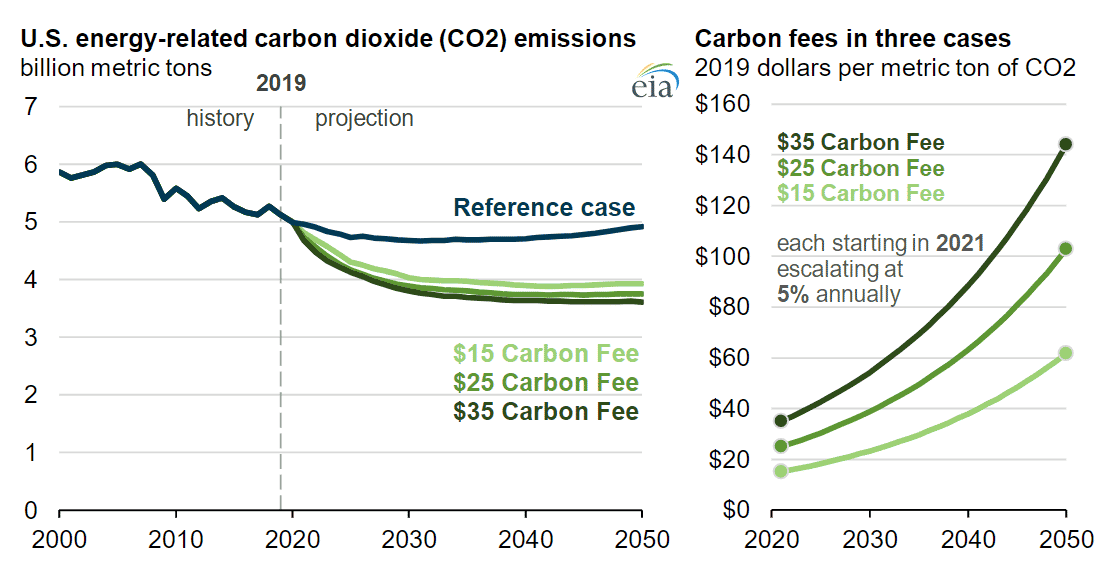Modest Carbon Fees Can Achieve Short-Term Emissions Reductions: EIA

Even modest carbon fees can facilitate emissions reductions in the short term, especially in the power sector where natural gas and renewables supplant coal, according to a March 17 report from the U.S. Energy Information Administration. However, once the emissions level linked to coal consumption is reached, the remaining gas- and petroleum-related emissions are harder to reduce. The agency’s annual outlook analyses three alternative policy cases on how carbon fees impact emissions.
The analysis starts in 2021 with carbon fees set at $15, $25 and $35 per metric ton of carbon dioxide, rising five percent per year through 2050. While imposing carbon fees raises costs for certain forms of energy and cuts total consumer disposable income, the analysis shows that returning these revenues partially compensate the loss of income. The cases share a similar pattern in which the near-term emissions decline before leveling off in the late 2030s, except in the $35 case where emissions start rising with increasing carbon fees..
The EIA forecasts almost no coal-fired capacity retirements from 2025-2050 in the reference case which reflects current regulations and laws. However, in the case with a $35 carbon fee the U.S. is expected to have 15 gigawatts of coal-fired capacity in 2050, which is significantly lower than the 2019 level of 229 gigawatts.
Natural gas consumption in the power sector increases in the near term as it replaces coal, but the fuel loses its share to renewables later in the projection period..
Nuclear power generation also increases in the carbon fee cases. “Petroleum is the least responsive fossil fuel to carbon fees,” the agency found. Transportation and industrial sectors, which accounted for 95 percent of petroleum consumption in 2019, have few replacement fuels.
Coal is the most polluting fossil fuel, emitting about 95 kilograms of CO2 for each million British thermal units burned. Natural gas, the least carbon-intensive fossil fuel, emits about 53 kg CO2/MMBtu. The carbon intensity of petroleum fuels lies in between that of coal and natural gas, with motor gasoline having an intensity of 71 kg CO2/MMBtu.
EnerKnol Pulses like this one are powered by the EnerKnol Platform—the first comprehensive database for real-time energy policy tracking. Sign up for a free trial below for access to key regulatory data and deep industry insights across the energy spectrum.
ACCESS FREE TRIAL